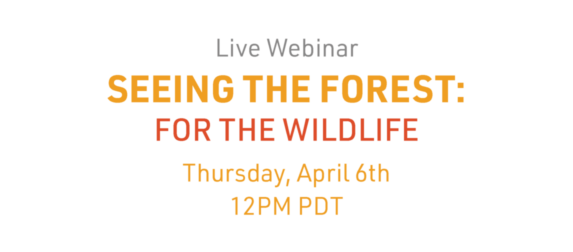


Join us on Thursday, April 6th for a discussion with PFT President Laurie Wayburn and panelists Paul Henson, Lauren Ponisio and Brett Furnas on the impact of current forest management policies and climate change on forest biodiversity. We’ll explore the critical role of natural forest management in restoring and maintaining older forests that can better support the native species that call our forest lands “home.”
More on Our Panelists:
Laurie Wayburn: Prior to co-founding Pacific Forest Trust in 1993, Ms. Wayburn worked internationally for 10 years in the United Nations Environment Program and Ecological Sciences Division of UNESCO. She later served as Executive Director of the Point Reyes Bird Observatory and was the Founder and first Coordinator of the Central California Coast Biosphere Reserve. Ms. Wayburn is a graduate of Harvard University and currently serves on the Northwest BioCarbon Initiative Steering Committee, the American Forest Policy Steering Committee, and the Land Trust Alliance Advisory Council.
Brett Furnas: Brett is a quantitative ecologist and Sr. Environmental Scientist Supervisor of the Big Game Unit with the Wildlife Health Laboratory at the California Department of Fish and Wildlife (CDFW), where he leads studies on statistical design and data analysis for large survey projects focusing on large mammals. He also leads studies monitoring the effects of climate change, fire, and other stressors on the conservation of wildlife diversity. Brett has worked for many years on the use of Autonomous Recording Units (ARUs) for surveying songbird communities throughout California. Brett holds a Ph.D. in Ecology from UC Berkeley, a M.F. in Forestry from Yale, and a B.A. from UC Berkeley in Physics and History.
Lauren Ponisio: Lauren is an ecologist with the University of Oregon’s Biology Department, where she studies bees and their roles as pollinators. She’s currently leading a pilot study that could change how forestlands in the Pacific Northwest are managed, particularly post-harvest and post-fire, to the benefit of wild bees. Her research has examined pathways for California almond growers to adopt more bee-friendly agricultural practices; discovered how native bee species may be best equipped to survive climate change; and analyzed how forest fires can help maintain pollinator biodiversity. Lauren earned a Ph.D. from UC Berkeley, as well as a M.S. and B.S. from Stanford University. She was a National Geographic Society Early Career Award winner and honored as a Global Food Initiative 30 Under 30 in Food Systems.
Paul Henson: Paul served for 30 years as a biologist and manager with the U.S. Fish and Wildlife Service. He was State Supervisor of the Oregon Fish and Wildlife Office, overseeing implementation of the Endangered Species Act, Habitat Conservation Plans, and the Northwest Forest Plan. Paul previously served as Assistant Regional Director in Sacramento, supervising endangered species programs in California, Nevada, and the Klamath Basin; and Field Supervisor of the Pacific Islands Fish and Wildlife Office in Hawaii, managing endangered species programs throughout the U.S. Pacific territories. He also spent 15 years as a field biologist conducting research on marbled murrelets, sea otters, raptors, trumpeter swans and waterfowl. Paul has a B.A. in Environmental Studies from UC Santa Cruz and a Ph.D. in Wildlife Biology from the University of Minnesota.
